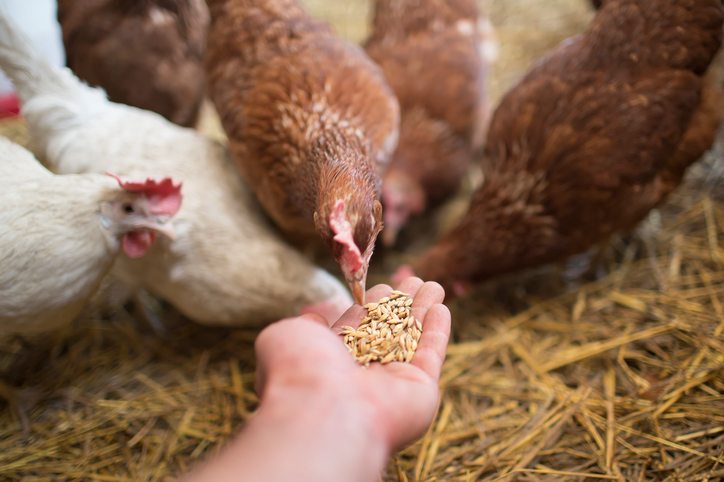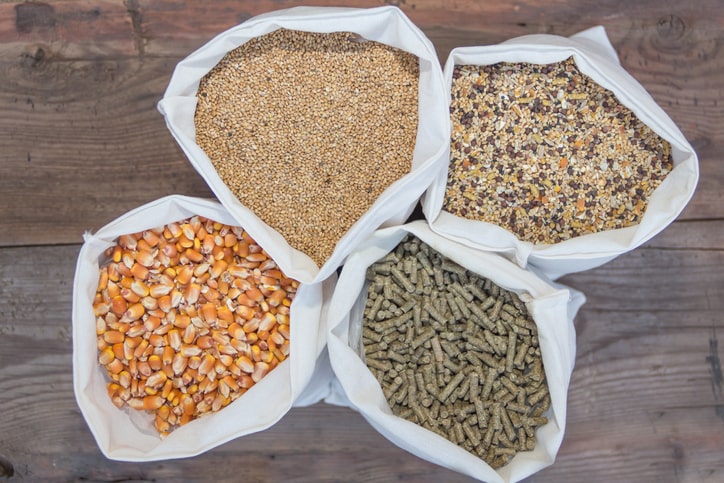Feeding poultry chickens properly is crucial for their health, growth, and egg production. Ensuring that they receive the right nutrients in the correct proportions is a responsibility that every poultry enthusiast must undertake. In this article, we will explore the importance of feeding, different feeding methods, types of feeds, and much more.

The Importance of Proper Feeding
Feeding your poultry chickens correctly is essential for several reasons. It impacts their growth, egg production, and overall health. An improper diet can lead to numerous health issues and decreased productivity. Proper feeding ensures that poultry chickens live healthy lives and provide high-quality produce.

Types of Poultry Feed
There are numerous types of feed available for poultry chickens, each with its unique benefits. Understanding these will help you decide the best diet for your flock.
Starter Feed
Starter feed is usually given to chicks from day one until they are about six weeks old. It contains a high protein content to support the rapid growth of young chickens.
Grower Feed
Grower feed is designed for young chickens that are not old enough to lay eggs. This feed ensures steady growth and development.
Layer Feed
Layer feed is specially formulated for laying hens. It contains the necessary nutrients to support egg production and maintain the health of the hens.
Flock Raiser Feed
Flock raiser feed is suitable for mixed groups of poultry, including those raised for meat and eggs. It offers balanced nutrition for a diverse flock.

Feeding Techniques
How you feed your poultry chickens is just as important as what you feed them. Here are some feeding techniques to consider:
Free Feeding
Free feeding, or ad libitum feeding, involves providing continuous access to food. This technique allows chickens to eat whenever they are hungry.
Scheduled Feeding
Scheduled feeding involves providing food at specific times of the day. This method helps regulate food intake and can prevent overfeeding.

Homemade vs. Commercial Feed
When it comes to feeding poultry chickens, you can choose between homemade and commercial feed. Each has its pros and cons.
Homemade Feed
Homemade feed allows you to control the ingredients and tailor the diet to your chickens’ specific needs. However, it requires time and knowledge to ensure proper nutrition.
Commercial Feed
Commercial feed is convenient and formulated to meet the nutritional needs of your poultry. It is consistent in quality, but it can be more expensive than homemade feed.
Impact of Diet on Egg Production
The diet of laying hens significantly affects egg production. A well-balanced diet with adequate protein, calcium, and other nutrients is essential for hens to produce high-quality eggs consistently.
Feeding Layers vs. Broilers
Layers and broilers have different nutritional requirements. Layers need a diet high in calcium to support eggshell formation, while broilers require a protein-rich diet for muscle growth.
Troubleshooting Common Feeding Issues
Several common issues can arise when feeding poultry chickens. Knowing how to identify and address these can help maintain the health and productivity of your flock.
Overfeeding
Overfeeding can lead to obesity and other health problems. It’s essential to monitor food intake and adjust feeding practices as needed.
Underfeeding
Underfeeding can result in malnutrition and poor growth. Ensure that your chickens receive adequate amounts of balanced feed.
Selective Eating
Chickens may pick out their favorite feed components and leave the rest. Providing a balanced, finely ground feed can help prevent selective eating.
Using Supplements and Treats
Supplements and treats can be beneficial when used correctly. They can provide additional nutrients and serve as enrichment for your chickens.
Watering Your Chickens
Proper hydration is just as crucial as feeding. Ensure your chickens have constant access to clean, fresh water to support their overall health.
Seasonal Feeding Considerations
Feeding requirements can change with the seasons. During colder months, chickens may need more calories to maintain body temperature, while in hotter months, hydration is more crucial.
Biosecurity Measures
Proper biosecurity measures are essential to prevent the spread of diseases. Ensure that all feeding equipment is clean and free from contamination.
Using Automatic Feeders
Automatic feeders can help streamline the feeding process and ensure that your chickens have constant access to food. They can be a great investment for larger flocks.
Understanding Poultry Nutrition
Understanding the nutritional needs of your poultry chickens is critical. A balanced diet should include the right amounts of protein, carbohydrates, fats, vitamins, and minerals.
Conclusion
Feeding poultry chickens is a comprehensive task that requires knowledge and attention to detail. By understanding the different types of feed, feeding techniques, and nutritional needs, you can ensure the health and productivity of your flock. For more information on different chicken breeds and their feeding requirements, you can visit this external link.
FAQs
What is the best feed for laying hens?
Layer feed is the best option for laying hens as it contains the necessary nutrients to support egg production.
How often should I feed my poultry chickens?
It depends on the feeding technique you choose. You can opt for free feeding (continuous access to food) or scheduled feeding (specific times of the day).
Can I make my chicken feed at home?
Yes, you can make homemade feed. However, it requires proper knowledge to ensure that your chickens receive a balanced diet with all the essential nutrients.
As an Amazon Associate, I earn from qualifying purchases.









